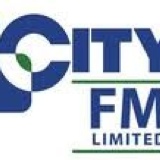Information
-
Work order No.
-
Chiller No.
-
Site name
-
Site Location
-
Client name
-
Conducted on
-
Prepared by (engineer name)
Chiller details
Chiller Details
-
Chiller location
-
Chiller manufacturer
- Powerpax
- Carrier
- Hirotech
- Daikin
- Luke
- Chrysler
- McQuay
- York
- Trane
- Other
-
If other make a note here
-
Chiller model
-
Chiller serial
-
Manufacturers nameplate picture - Must take picture for reference
System running checks
System running checks
Chiller - common readings
-
Chiller supply voltage
-
Control voltage
-
All terminals checked for tightness
-
Condenser clean
Circuit - specific readings
-
Circuit
-
Circuit run hours
-
Liquid line sight glass clear?
Electrical checks
Electrical checks
-
Compressor
Condenser fan
Component checks
Component checks
-
Pump down cycle operational
HP switch
-
Auto or manual reset
-
Cut out pressure (Bar)
-
Cut in pressure (Bar)
LP switch
-
Auto or manual reset
-
Cut out pressure (Bar)
-
Cut in pressure (Bar)
Low temperature cutout switch
-
Auto or manual reset
-
Cut out temperature (C)
-
Cut in emperature (C)
Flow switch
-
Chilled water operational
-
Condenser water operational
-
Heaters
Heaters
-
Crank case heater operational
-
Evaporator heater operational
-
Control panel heater operational
F-Gas compliance
F-Gas compliance Leakage inspection
-
Leakage inspection
Systems shall be checked for leakage dependent on refrigerant charge:
3kg charge and above - check at least once every 12 months.
30kg charge and above - check at least once every 6 months.
300kg charge and above - check at least once every 3 months.
Hermetically sealed systems, which are labelled as such and contain less than 6kg, are exempt.
Operators of equipment containing 300kg or more must install an automatic leakage detection system. These must be checked at least once every twelve months to ensure they are functioning properly.
Checked for leakage means that the system is systematically checked for leakage using direct or indirect methods, focusing on those parts of the system most likely to leak. The cause of any leak will need to be recorded in the log book.
A detailed definition of what constitutes a leak check will be part of legislation attached to F-Gas. -
Refrigerant type
- R22
- R407C
- R410A
- R717A
- CO2
- Other
-
If other make a note here
Amount of refrigerant (kg)/circuit
-
Refrigerant (kg)
-
Leak test carried
-
Leak test result<br>Safe = No leak found At Risk = Leak present, make notes and take pictures
-
Refrigerant leak detection installed
-
Refrigerant leak detection operating correctly
Additional information / Notes
Additional information / Notes
Sign off
Sign off
-
Work complete
-
Client - Print and sign
-
Select date
-
Engineer - Print and sign
-
Select date










